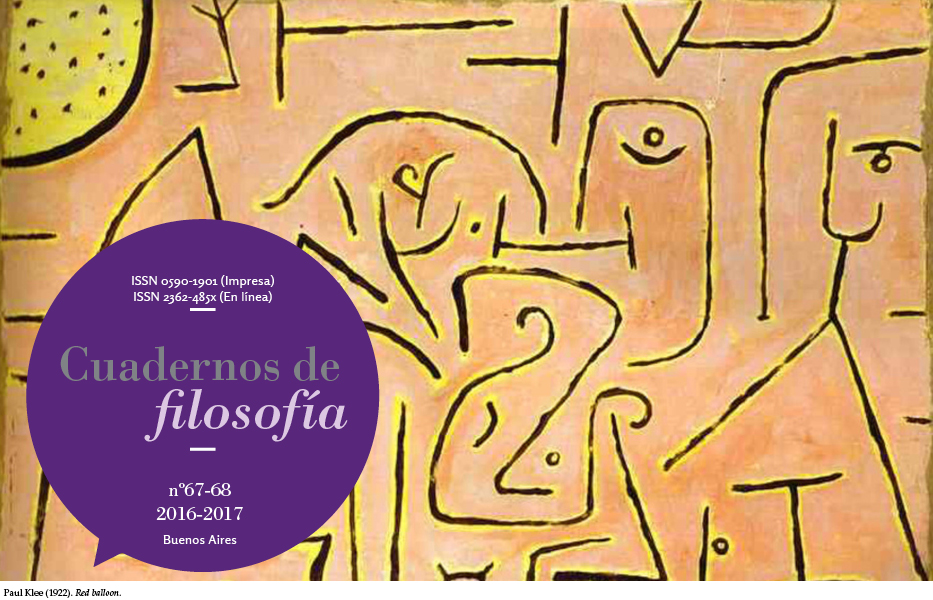La interpretación de Heidegger del devenir eterno en la filosofía de Schelling
Resumen
Heidegger define desde Sein und Zeit (1927) en adelante a la “temporalidad originaria (ursprüngliche Zeitlichkeit)” como “temporariedad (Temporalität)” del sentido del ser en general. En el presente escrito sostendremos que la estrategia seguida por el autor para desarrollar dicha temporariedad consiste en redefinir el concepto clásico de “eternidad (Ewigkeit)”, concepto que es asociado en la filosófica clásica a la ausencia de tiempo y a la cancelación del mismo. A tales efectos, mostraremos que en su curso de 1936 dedicado al escrito de Schelling titulado Philosophischen Untersuchungen über das Wesen der menschlichen Freiheit und die damit zusammenhängenden Gegenstände de 1809, Heidegger encuentra un concepto de eternidad que es definido y analizado ya no como un ahora supratemporal o permanentemente intemporal, sino, por el contrario, ésta se revela como el origen temporal del tiempo; la asociación entre eternidad e instante desarrollada por Schelling para explicar la aparición del mal en el hombre es el criterio que Heidegger apropia hermenéuticamente del autor idealista para redefinir, así, el concepto clásico de eternidad, convirtiendo a ésta última en el origen temporal del cual emana la totalidad del tiempo. Por lo tanto, en el presente escrito reconstruiremos cómo la movilidad temporal originaria de lo eterno postulada por Schelling será, a juicio de Heidegger, el modo en que se expresa la temporalidad originara entendida como temporariedad del sentido del ser en general.Descargas
Los autores/as que publiquen en esta revista aceptan las siguientes condiciones:
Los/as autores/as [traductores/as] conservan los derechos de autor/a y ceden a la revista el derecho de la primera publicación, con el trabajo registrado con Licencia Creative Commons Atribución-NoComercial-CompartirIgual 4.0 Internacional, que permite a terceros utilizar lo publicado siempre que mencionen la autoría del trabajo y a la primera publicación en esta revista.
Los/as autores/as pueden realizar otros acuerdos contractuales independientes y adicionales para la distribución no exclusiva de la versión del artículo publicado en esta revista (p. ej., incluirlo en un repositorio institucional o publicarlo en un libro) siempre que indiquen claramente que el trabajo se publicó por primera vez en esta revista.
Se permite y recomienda a los/as autores/as a publicar su trabajo en Internet (por ejemplo en páginas institucionales o personales).
Políticas de detección de plagio
La colaboración de los y las editores/as, autores/as y evaluadores/as de esta revista y la guía de ética de los procesos editoriales se rige por los Principios de transparencia y buena práctica en publicaciones académicas del Committee on Publication Ethics (COPE) disponible aquí.
Todos los artículos enviados a esta publicación serán supervisados mediante una búsqueda online.







